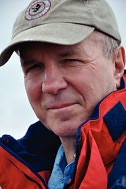- Shopping Bag ( 0 items )
-
All (73) from $1.99
-
New (16) from $7.62
-
Used (57) from $1.99





Overview
In sumptuous and illuminating detail, Simon Winchester, bestselling author of The Professor and the Madman, brings to life the extraordinary story of Joseph Needham—the brilliant Cambridge scientist, freethinking intellectual, and practicing nudist who unlocked the most closely held secrets of China, once the world's most technologically advanced country.